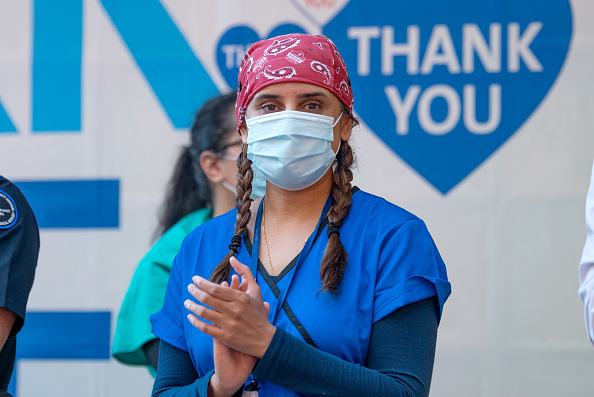
W.H.O. calls for better working conditions for nurses worldwide

World Health Organisation Director-General Dr. Tedros Adhanom Ghebreyesus urged countries around the world to improve the working conditions for nurses.
Ghebreyesus made the call in a video message on Tuesday to celebrate International Nurses Day. International Nurses Day is celebrated around the world every May 12, the anniversary of Florence Nightingale’s birth, to mark the contributions that nurses make to society. The theme for this year is “Nursing the World to Health”.
The COVID-19 pandemic has highlighted the critical role nurses, who make up more than half of global health workers, play in providing healthcare and fighting epidemics and pandemics.
In light of this, Ghebreyesus said that it was important that countries properly equip and compensate nurses who were putting their lives at risk for the greater good of humanity, especially in such times of crisis.
“All countries of all income levels must ensure occupational safety and health for their nurses. Beyond PPE and physical safety, nurses and all health care workers deserve timely pay, sick leave, health insurance and mental health support,” Ghebreyesus said.
According to the W.H.O., there is an urgent shortage of nurses worldwide with about six million more nurses still needed, especially in low- and middle-income countries.
One of the causes of this shortage has been attributed to the disparities in remuneration of nurses. The International Council of Nurses (ICN) says that differences in pay and benefits between countries appear to be a significant factor influencing migration flows.
“Given the relative fall in nurses’ purchasing power over the last 10 years, there is an urgent need to give the world’s nurses a pay rise and better working conditions in order to address the attractiveness of the profession,” a report by the ICN said.
The report further cautioned against the use of short-term decision making by politicians and policymakers on the matter of adequate payment to nurses, terming such motives as “self-defeating”.
“Medium and long term pay and reward strategies need to be in place to ensure workforce supply meets population needs and to deliver economic competitiveness and sustainable growth,” the report added.
The W.H.O. has previously said that countries can triple the impact of improving health, promoting gender equality and supporting economic growth by developing their nursing workforces.
Ghebreyesus added that it was also prudent to ensure adequate representation of nurses in leadership roles in the health sector given their knowledge and experience in health matters.
“Nurses must be properly valued and represented in health leadership roles where they can work to guide health policy and investment,” he said.
Ghebreyesus also paid tribute to nurses and all health workers for their contributions in the fight against the COVID-19 pandemic. He described nurses as the “backbone of every health system” and said the world must take time to honor those who had lost their lives during the COVID-19 pandemic.
The International Council of Nurses (ICN) said that thousands of nurses have been infected with COVID-19 and hundreds have already died, but governments are unable to say exactly how many as they are not collecting such data.
The ICN says this failure is putting more nurses and their patients in danger during the fight against COVID-19.
On Monday, in response to this, the W.H.O. said there was an “alarming” number of healthcare worker infections with COVID-19 globally, with some countries reporting that upwards of 10 percent of reported cases were among healthcare workers.
Last month, the W.H.O. said that 22,073 COVID-19 cases among healthcare workers had been reported to it.
The W.H.O. said that it was working to better understand where healthcare workers were being infected, why healthcare workers were getting infected and how it could ensure that this trend was reduced and stopped.






